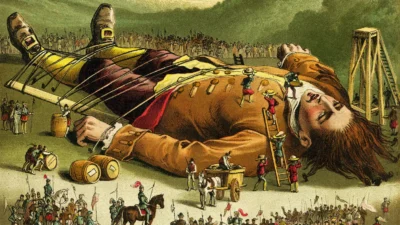Albert Venn Dicey and the Immunity of the Administrative State
Although most scholars’ legacies survive only in footnotes, Albert Venn Dicey won the greater glory of surviving in a phrase: “the rule of law.” Dicey popularized the term and made it not just an academic category but, eventually, a battle cry for politicians and policymakers of varied stripes.
The rule of law today means different things to different people. But Dicey’s particular conception is most often used to critique the rise of the administrative state. Dicey contrasted the rule of law, which he identified with the ordered liberties of the English speaking world, with the French droit administratif or administrative law, which he considered both arbitrary and dangerous.
Yet Dicey’s critiques of administrative law have little to do with contemporary concerns. In fact, he contrasted the rule of law not with rule-making regulators, with whom he had some sympathy, but rather with the legal immunity of government officials. If one is allowed some liberties with his legacy, one can say that Dicey would be most exercised not by bodies like the Federal Communications Commission, but by the doctrine of “qualified immunity,” which protects government officials from lawsuits. While the subject of qualified immunity is commonly debated in the realm of police procedure, there is almost no discussion of the immunity of other government officials such as regulators and inspectors.


Restoring Legislative Authority: A Balanced Approach to Agency Deference